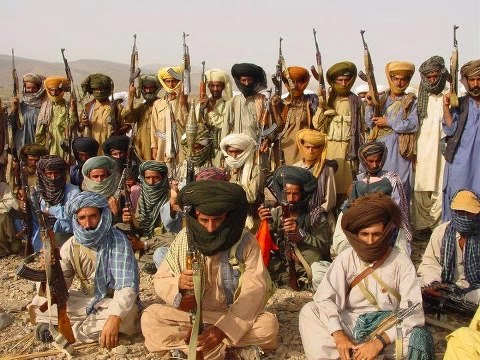Pakistan: The demon the West created
BY TAREK FATAH
FIRST POSTED: TUESDAY, AUGUST 21, 2012 07:49 PM EDT
August is a month that brings both joy and grief to the 1.3 billion people of the Indian subcontinent. Joy, as we celebrate the end of nearly 200 years of British colonial rule in 1947, and sorrow as we remember the one million who were slaughtered unnecessarily in a genocidal frenzy of religious hatred.
Punjab, my ancestral homeland, was sliced in two by the departing British to create the new state of Pakistan. In a few short months, the entire population of Punjab’s indigenous Sikhs and Hindus in Pakistan was either slaughtered or driven out by raging mobs of Muslim fanatics. On the other side of the border, there was more bloodshed.
The question often asked is, who penned the partition of India? Who was responsible for carving out Pakistan, a country that seems to have an insatiable appetite for bloodshed, and that has been responsible for, or associated with, more acts of jihadi terrorism then any other country on earth?
From Khalid Sheikh Mohammad’s 9/11 plans to the recent recruitment of jihadis in Burma; from the Toronto 18 to the London 7/7 bombings, fingerprints of Pakistan-based jihadi groups and ideologies are ubiquitous.
Conventional wisdom and traditional scholarship dictates, Pakistan came about as a result of Muslim grievances and fear of a Hindu-majority rule in post British India. Mohammad Ali Jinnah and the All India Muslim League are given credit for tapping into this sense of victimhood that still drives much of Islamist anger around the world.
However, there is more to it than meets the eye. On May 5, 1945, the very day Germany surrendered, Prime Minister Churchill ordered an appraisal of “the long-term policy required to safeguard the strategic interests of the British Empire in India and the Indian Ocean.” Two weeks later Churchill received the top-secret report that, among other proposals, mentioned the necessity of British presence in Northwest India (today’s Pakistan) “from which British air power could threaten Soviet military installations.” When this was brought to the attention of Mahatma Gandhi, Jawaharlal Nehru, India’s Prime Minister and the Congress, they made it clear they would not accept British bases on Indian soil. On the other hand, Muslim League leader Jinnah was amenable to such an idea.
Two months later, Churchill was shockingly defeated by the Labour Party in the election, leaving the task of creating Pakistan for the sake of Western military strategic needs to the socialists.
By June 1947, the decision to amputate India was announced in London. It was left to British foreign secretary Ernst Bevin to explain to his party activists why London would seek to destroy what it had built over 100 years as the “Jewel of the British Crown.” Defending the decision that would devastate the lives of millions for decades, Bevin told delegates at a Labour Party Conference that the division of India was necessary because it “would help to consolidate Britain in the Middle East.” It’s no coincidence that within a few years, the U.S. would establish an air base in Pakistan to launch its high altitude U2 spy aircraft until one day in 1960 when a U2 was shot down over Russia and Gary Powers was captured.
Thus came the great divide on August 14-15, 1947. After partition, the UK handed over the baton to the US ,who invested heavily into Pakistan becoming a frontline anti-communist military state. Today, the USSR is dead, but Pakistan is alive and has become America’s demon; one that successive U.S. administrations cannot put back into the bottle.
My next book, “Pakistan: The Demon America Created” dwells in detail the tragic division of India and the monster of Islamism that morphed out of the Cold War and now haunts and hunts its own maker.



Comments
Post a Comment